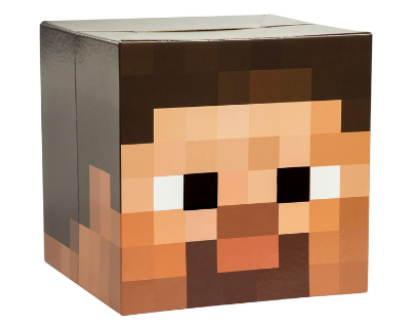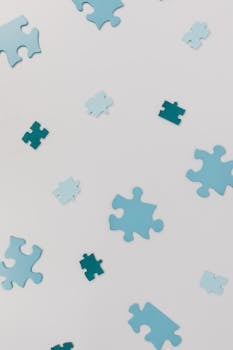Ever felt your brain craving a challenge during a spare moment? Mobile puzzle games are more accessible and engaging than ever, offering instant mental stimulation wherever you go. They fit neatly into daily routines, blending learning with entertainment.
Keeping your mind sharp isn’t just about reading or doing crosswords; it’s about discovering creative, novel ways to stretch your thinking. Puzzle games on mobile create opportunities for quick, effective nerve-jogging exercises that fit busy lifestyles and calm restless moments alike.
This guide explores top-rated games, distinct approaches, and actionable strategies anyone can use for brain training, whether seeking a daily exercise or an occasional cerebral adventure. Let’s dive into standout puzzle games that challenge and reward in equal measure.
Transform Strategy Into Fun With Logic-Based Puzzles
Logic puzzle games on mobile challenge players to solve problems in new ways with a series of specific rules and results. These games sharpen pattern recognition and strategic thinking.
Approaching each puzzle is like untangling a stubborn headphone cord—care and patience reveal the solution. But unlike real headphones, the reward is a confident leap in mental agility and flexibility.
Building a Mental Routine With Daily Play
Setting aside ten minutes daily for logic puzzles establishes a lively, achievable mental habit. Start each morning by solving two short levels. Observe how repeated effort builds speed and problem-solving accuracy, even across different game formats.
Just as warming up muscles before activity prevents injury, warming up your brain strengthens cognitive “muscles.” Players who follow a routine report recalling details faster and navigating more complex logic as days progress. Try: “Let’s tackle a puzzle before coffee as a warm-up.”
Reflecting on small victories keeps motivation high. Ticking a checkbox or sharing a solved puzzle with a friend offers immediate accomplishment. Next time, text: “Just beat three levels before breakfast—ready for anything!”
Applying Rule-Based Reasoning in Puzzle Sequences
Many logic games teach explicit rules: “Tiles of the same color can’t touch” or “Rotate shapes to complete the circuit.” Saying the rule aloud or jotting it down sharpens recall and avoids early mistakes.
Practice with a common example: In a number-link puzzle, connect all points without crossing lines. Mentally rehearse: “Don’t overlap paths, always fill the grid.” This tightens focus over time.
As difficulty increases, cluster rules into sets. For example, “Red squares move horizontally, blue move vertically.” Using phrases like “Blue jumps up, red slides left” physically taps logic for each step. This habit speeds up later rounds.
| Game Title | Main Mechanic | Typical Rule | Quick Tip |
|---|---|---|---|
| Brainwell | Sequence Identification | Match symbols without repeats | Repeat sessions to see faster patterns |
| Two Dots | Connect and Clear | Lines cannot cross | Plan ahead by visualizing chains |
| Flow Free | Path Drawing | Paths must fill the board | Work from the corners inward |
| Logic Pic | Grid Deduction | Numbers define block locations | Highlight certain rows to avoid errors |
| Puzzle Page | Varied Logic | Different rules each level | Take a break if you get stuck |
Develop Spatial Awareness Through Interactive Challenges
Spatial puzzle games demand that players rotate, arrange, and reshape components visually, simulating hands-on problem-solving. Tetris-inspired games illustrate this perfectly: quick decisions lead to rewarding visual payoffs and a more decisive mind.
By practicing spatial puzzles regularly, you build strength in mental rotation and visual estimation—skills that transfer to navigation, packing, or even parking a car in a tight spot.
Building Your Own Challenge Set
Decide on a favorite format for spatial games, such as block-fitting or jigsaw simulators. Play each new variation twice, noting where you hesitate or adjust blocks for a perfect fit.
Track improvement by aiming to reduce time spent on similar puzzles. Use a timer or tally unfinished puzzles every week to measure growth, not just high scores.
- Practice rotating blocks mentally before moving them: speeds up decisions and minimizes mistakes.
- Arrange borders first in jigsaw-style puzzles: creates reference points to fill in details quickly.
- Switch hand positions while holding your mobile device: improves adaptability and focus.
- Replay hardest levels after breaks: gauges retention and keeps frustration at bay, making progress satisfying.
- Invite a friend to try the same level: compare strategies, swap phones, and discuss different approaches.
Choosing a steady mix of familiar and unfamiliar puzzles keeps the mind ready for new challenges and encourages continual learning by building from current strengths.
Translating Game Skills to Real Life Tasks
Notice how placing virtual blocks helps when rearranging actual furniture. People who regularly play spatial games mention using “I pictured that move from the game” when planning room layouts or organizing a suitcase.
Copy the strategy: Before packing or rearranging, set a phone timer for two minutes. Mentally rehearse movements as if you’re inside the puzzle. Take action with confidence, just like in a timed mobile game.
- Begin with one or two core shapes, much like starting a puzzle with corners.
- Test a new method every session and log which feels most natural or quick.
- Challenge yourself by alternating between touch and stylus controls to mirror adaptability in other tasks.
- If you get stuck, model the frustration technique: intentionally sigh, pause, shake out hands, and look away for twenty seconds before returning.
- Share your success by sending a screenshot, reinforcing the effort and progress made.
Soon, even everyday organizing and problem-solving tasks will benefit from these practiced mental moves and adaptive strategies.
Improve Memory Retention With Match-and-Reveal Mechanics
Match-and-reveal mobile games boost memory by rewarding players for recalling images, colors, or symbols after brief exposure. The satisfaction comes from seeing memory in action and tracking improvement round by round.
Many popular titles use flipping cards or timed sequences where players must spot identical pairs. Practicing these can expand your capacity to remember details in other settings, like names or shopping lists.
Encouraging Fast Recognition Progress
Start with practice rounds using a small number of cards, building up gradually with each win. Say the image or color aloud when revealed to cement the visual in memory.
Self-challenge works; for instance, someone might exclaim, “If I get these matches under twenty seconds, I’ll treat myself to a coffee.” The key is visible, immediate reward for short-term effort—mirroring effective learning approaches used in classrooms.
Breaking the game’s time records or moving up a level creates tangible benchmarks, much like leveling up in physical skill-based activities. Repeat with: “Let’s do five rounds in five minutes today!”
Routine Memory Mini-Tests Extend Beyond Games
Take the match-and-recall principle outside the phone. After finishing a session, try to write down the sequence of icons or locations you just saw from memory.
People have said, “When shopping, I now picture the store layout as a card-matching puzzle. It’s easier to spot what I need on shelves.” Rehearsing this mental exercise once daily helps with everyday recall.
Think of it like rehearsing a friend’s phone number before dialing. This mental run-through strengthens both game performance and memory reliability at crucial moments, such as giving directions or recalling important details during a meeting.
Tuning Emotional Resilience Using Relaxing Puzzle Environments
Puzzle games with soothing music and gentle visuals create a restorative break for the mind. They lower stress while keeping neural pathways active, serving as a dependable reset during hectic days.
Contrast tense, time-based challenges with calm, meditative games. Swapping high pressure for positive reinforcement gives players space to build problem-solving stamina without anxiety or frustration.
| Type | Gameplay Focus | Emotional Effect |
|---|---|---|
| Meditative | Slow, open-ended puzzles | Steady, calming |
| Timed | Fast, competitive | Adrenaline spike |
| Visual | Pleasing color patterns | Satisfying, restorative |
Choosing a relaxing game from the table above invites users to reset energy, much like a deep breath resets the mind. Play for five minutes between stressful calls for measurable calm and focus.
Staying Motivated: Turning Puzzles Into Daily Rituals
Committing to a short, daily puzzle session transforms idle time into engaging mental “exercise.” Much like brushing teeth builds a healthy habit, so does routine puzzle playing promote ongoing growth.
Several players create reminder cues; setting a daily alarm labeled “Brain time!” or partnering up with a friend for a morning challenge adds social motivation. The ritual creates a rhythm for accountability.
One expert likened daily puzzles to watering a plant. “Skip a day, it wilts; keep it up, it thrives.” Tracking progress in an app’s history page reveals subtle improvements much like tallying physical exercise reps.
Adults who share their daily results with friends or family report feeling more connected and motivated to push for progress, even on days when energy runs low. Consistency triumphs over occasional bursts of play.
Turning puzzle games into a daily check-in ensures growth becomes second nature, weaving cognitive training seamlessly into one’s personal routine.
Quick Strategies for Overcoming Mental Plateaus
- Switch puzzle genres each week: prevents stagnation and keeps neural pathways flexible, ready to absorb new logic and visual challenges.
- Invite friends for puzzle races: boosts engagement and introduces friendly competition, making even challenging levels fun and interactive.
- Analyze mistakes after each session: look for patterns or recurring errors and adjust tactics next time to improve retention and confidence.
- Pause at first sign of frustration: quick breaths recalibrate focus, minimizing rash decisions that lead to repetitive errors and fatigue.
- Replay your favorite levels: fine-tunes strategies by reinforcing successful approaches, which can be applied on future, harder stages.
- Document breakthroughs in a digital or paper journal: tracking “aha” moments encourages mindful learning and helps recall solutions later.
Implementing these actionable steps transforms plateaus into temporary hurdles rather than persistent obstacles to progress or enjoyment.
Frequent, deliberate switching between different game types and tactics is essential for continuous growth. By staying flexible and open, even the toughest logic walls become achievable challenges.
Moving Forward: Maintaining Sharpness Through Puzzles
This guide outlined a variety of puzzle games and methods, turning everyday moments into brain-boosting rituals. Mobile puzzles deliver short, impactful challenges that keep minds alert and adaptable.
Combining suitable game formats—logic, spatial, memory, or relaxing—ensures cognitive training remains fresh. Real-world analogies and daily routines embed benefits far beyond the screen, enhancing navigation, recall, and emotional resilience.
Daily engagement, routine creation, and active reflection on progress fuel motivation and lasting personal growth. Overcoming plateaus strengthens confidence, while sharing milestones builds accountability and connection.
Approach every puzzle session as both a skill test and a celebration of improvement. Whether squeezing in a round on the bus or competing with friends, game-based training promises steady, lifelong rewards for the sharp-minded explorer.

